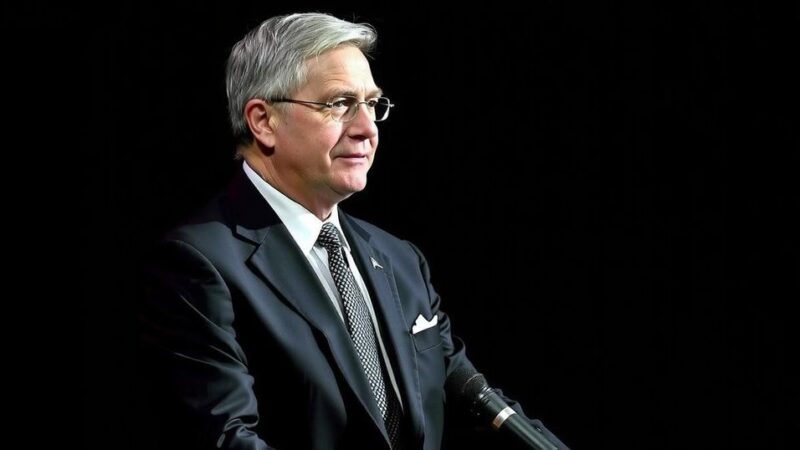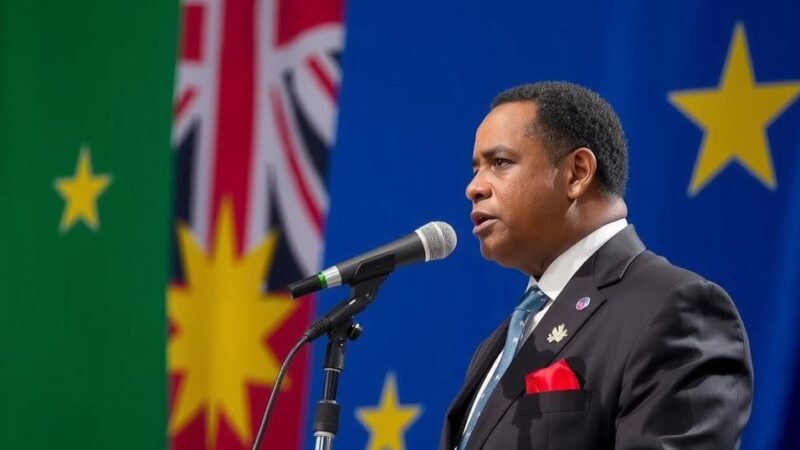Donald Trump’s impending second term raises alarms for climate advocates, as he may withdraw the US from the Paris Agreement and rollback emission reduction policies. Historical precedents indicate he will prioritize fossil fuel expansion, potentially allowing China to assume a leadership role in renewable energy. Despite these challenges, global efforts towards decarbonization are expected to persist. Experts stress the importance of continued climate action, regardless of US policy changes.
As Donald Trump embarks on his second term as President of the United States, there is mounting concern among climate change advocates regarding his policies. With the US being the world’s second-largest emitter of greenhouse gases, a potential withdrawal from the Paris Agreement could exacerbate the already critical situation of rising global temperatures. Under Trump, there is a strong possibility of a rollback on commitments to reduce emissions, the promotion of fossil fuels, and the dismissal of electric vehicle initiatives. Historically, Trump’s previous term saw the US exit the Paris Agreement and the revocation of numerous environmental regulations. His current rhetoric emphasizes a significant expansion of oil and gas extraction, encapsulated in his rallying cry, “drill baby drill.” Despite these setbacks, leading figures in climate advocacy maintain that global efforts to address climate change will persist irrespective of US policies. Christiana Figueres, the former Executive Director of the UNFCCC, stated, “The result from this election will be seen as a major blow to global climate action, but it cannot and will not halt the changes underway to decarbonise the economy and meet the goals of the Paris Agreement.” She further elaborated that advancements in clean energy technologies will continue irrespective of the US’s reliance on fossil fuels, as these alternatives are increasingly becoming more efficient and competitive. Should the US retreat from its climate commitments, China stands poised to step into a leadership role in renewable energy and cleantech sectors. This change in dynamics could lead to a significant shift in economic opportunities, particularly if the Inflation Reduction Act is repealed, favoring other global economies such as the EU, India, and Brazil for investments in clean energy initiatives. Nevertheless, many countries are proactively pursuing their climate agendas, demonstrating a commitment to climate action even if the US does not. Dr. Arunabha Ghosh, CEO of the Council on Energy, Environment and Water (CEEW), emphasized the broader implications of Trump’s policies on global energy transitions and stated, “The US election results will have major implications for the pace of the world’s transition to clean energy and mitigating the adverse impacts of climate change.” He underscored the necessary global resolve to continue action in the face of challenges posed by US policies. In summary, while Trump’s presidency may pose a significant challenge to international climate agreements and collective action, the global movement towards decarbonization is unlikely to be derailed. The responses from other nations and advancements in clean energy industries manifest an enduring commitment to combating climate change.
The discourse surrounding climate change has intensified due to its far-reaching impacts on the global ecosystem and public health. International agreements such as the Paris Agreement aim to limit global warming to 1.5 degrees Celsius. However, the commitment of major economies like the United States is critical in achieving these goals. Trump’s presidency is characterized by skepticism towards climate change initiatives, raising concerns about the trajectory of global efforts to mitigate its effects.
Trump’s re-election is a significant setback for global climate action, particularly if the US withdraws from the Paris Agreement and dismantles existing environmental regulations. Nevertheless, leaders in climate advocacy assert that the momentum towards clean energy and sustainable policies will persist globally. The international community must navigate this challenge with renewed resolve to ensure progress continues in the fight against climate change, regardless of US actions.
Original Source: carboncopy.info






